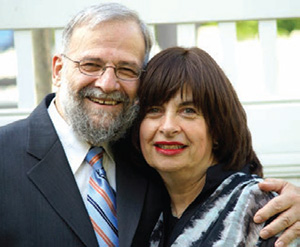

We have learned since living here that it is important to have your telephone number put on the “Do Not Call Registry,” and we did so as soon as we heard about it. Nevertheless, the system is obviously not foolproof and endless calls arrive each day from “unavailable.” Fortunately, caller ID shows us not to pick up the telephone. We learned and have gone even further in recognizing that when a call comes from Salt Lake City, or somewhere in Georgia, the possibility of it being an advertising type of call has taught us not to answer the phone.
Lo and behold, during the weeks leading up to the election, we received many calls from the 201 area code, which led us to believe that they were local and perhaps people we knew or would get to know. Instead, our “good friend” Scott Garrett called us several times a day for weeks. We believe that we received a call or two from our old friend Josh Gottheimer, and the call de resistance that originated with a 201 area code was on Election Day itself in the morning. Our very good friend Joe called. There he was—“Hi, it’s Joe Biden calling.” How impressive that the vice president of the United States was taking the time to talk to this couple that is relatively new in the neighborhood. Our Canadian friends will be really jealous. We can be certain that none of them have ever received a call from Pierre Trudeau prior to his election, Stephen Harper prior to his election or from Justin Trudeau, the current prime minister of Canada. We began to laugh at the hilariousness of the situation. Understandably, we have no longer heard from Joe or Scott since Election Day as they are both probably trying to lick their wounds. We wonder, however, what the reason was that those calls were never made prior to the election. Was anyone interested in what was really concerning us about our daily life in this county, state or country? Guess not!
All of us have experienced a phone call from a neighbor who regularly passes us by on the street and suddenly needs a “favor,” and calls to say hello and make a request. Their lawn mower died and they are in urgent need of a replacement ASAP. Will we hear from them again? How many of us have been guilty of passing someone on the street without greeting them, in nothing more than a curt exchange, until the time when we need to ask them to join us for a quick “minyan in the house” to ensure that an uncle who is visiting is able to say Kaddish? Will we stop to spend some time with them the next time we see them? Probably not. What is it about human nature that allows us to be inconsiderate to people when we know absolutely that it is the wrong thing to do? Why are there those who say they will “be in touch” and then you never hear from them? Why do we, with good intentions, promise things to children with the knowledge that we will not be able to come through on what we assured them we would do? Both of us remember as children being in that situation. Mordechai had an “uncle” (not really), probably a distant cousin of his father’s, who used to visit the family in Boston annually, driving in from New York. Each time he visited he would promise Mordechai that he would bring him a cocker spaniel the next time he came. The little boy waited each year for this uncle’s visit for a cocker spaniel to appear. To this day, he would love to have a cocker spaniel. He remembers well how hurt he was that an adult making a promise to him never came through. Nina remembers her Uncle Aaron who would also always promise her things. He also never let any of his declarations come to fruition. A little girl is one thing, but the impact over the years are still vivid. Lesson learned in our family. Do not make a promise that cannot be kept. How often do we hear people try to bribe their children by offering them something special if they get into the van, hurry and put on their jackets, clean their rooms, and then over time the promises are forgotten?
We as adults can take full blame in molding the ways that our children think, as we are their models. As difficult as it is to punish a child for not listening when he is asked to do something, we are probably doing them a favor by punishing them instead of making promises to them that we often forget to keep.
We guess that Scott, Josh and Joe no longer have to call us because they no longer have to make promises that they probably would not be able to keep anyway. They are actually less important in our mindset than the friend or acquaintance who says we must get together and then over time never makes that call. It would be so much easier for people to think before they say anything, realizing that the ramifications are hurtful to the recipient.
As we researched this article we found that there are also “Do Not Call Registries” that can be used during political campaigns. We will share the info prior to the next election. Just in case Donald decides to call us over the next little while to ask if we need anything in the next four years, we will send him your very best and share our disgust at how dark the streets still are in Bergenfield and Teaneck at night. Perhaps he has more clout than our local politicians.
By Rabbi Mordechai and Nina Glick











